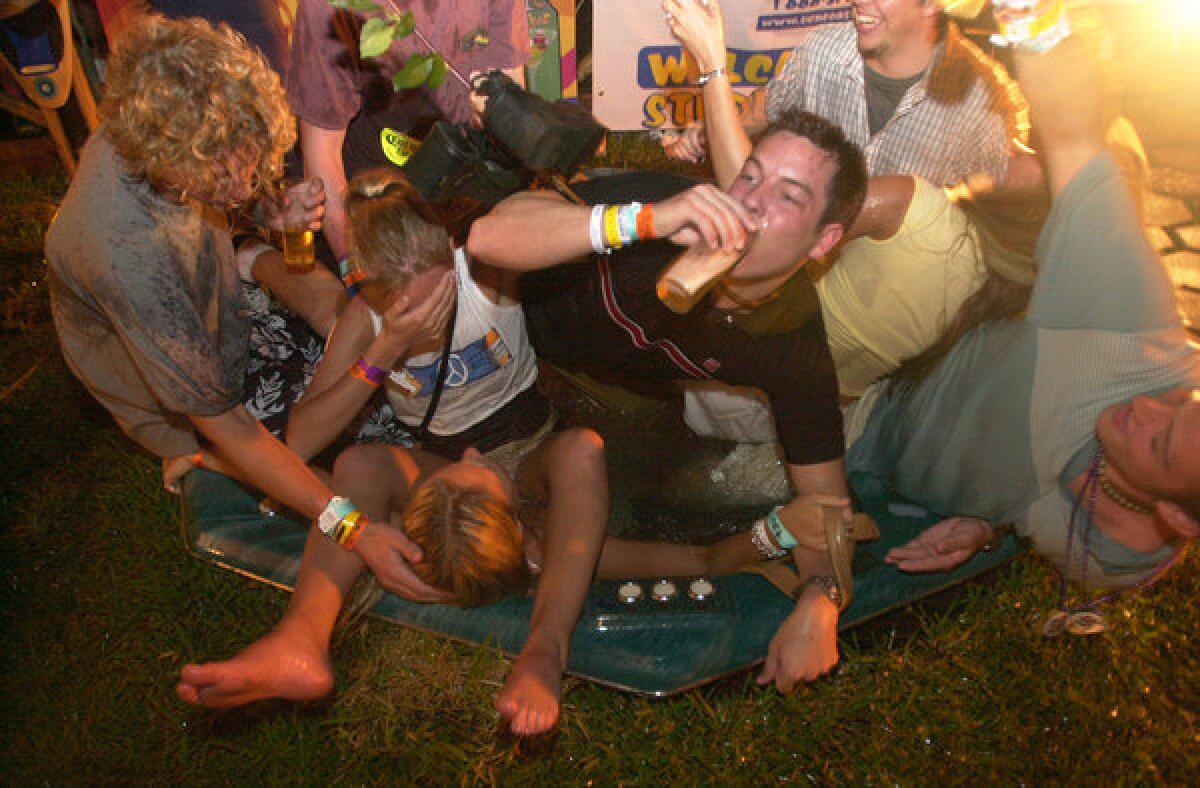Do men and women view drunkenness the same way?

At what point would you consider someone to be just âtipsyâ as opposed to âhammeredâ on alcohol? The answer, it turns out, depends on whether youâre a man or a woman.
In a study published online Wednesday in the journal Alcoholism: Clinical & Experimental Research, psychologists found that women were more likely to describe heavily intoxicated females as just âtipsyâ or âbuzzed,â whereas men were more likely to describe other men as âwastedâ or âhammeredâ even if they were just moderately drunk.
The difference in word choice -- which is probably influenced by a variety of social factors -- could carry significant consequences for women, particularly those of college age, according to lead study author Ash Levitt, a social psychologist at the Research Institute on Addictions at the University at Buffalo, SUNY.
âThe fact that women apply euphemistic terms such as âtipsyâ even when the target is substantially intoxicated is troubling,â Levitt and colleagues wrote. âMisperceptions of othersâ intoxication could lead to the encouragement of poor decision-making and the downplaying of risky situations such as driving while impaired, having unplanned sexual activity, being the victim of verbal, physical, or sexual assault and experiencing other serious alcohol-related problems.â
The study, which was conducted jointly by researchers at Levittâs institute, the Midwest Alcoholism Research Center and the University of Missouri-Columbia, involved 145 college undergraduate students who completed online surveys in 2007.
The questionnaires described a variety of scenarios in which a group of fictional male and female characters visited a bar to celebrate a friendâs birthday. The characters were described as drinking either moderately or heavily, and as engaging in either aggressive or nonaggressive behavior.
Students were then given a list of words and phrases and asked to assign them to the appropriate character. The list included the euphemisms buzzed, light-headed, loopy, tipsy, gone, hammered, obliterated, plastered, plowed, smashed, tanked, trashed and wasted.
Study authors noted that in previous research, women were more likely to describe their personal level of drunkenness in more moderate terms than men, who tended to use stronger terms. They hypothesized that women might describe other womenâs drinking as being more moderate as well.
The study results generally supported this hypothesis, the authors wrote.
âFemale participants applied moderate intoxication terms to moderately intoxicated characters more than male participants. Additionally, male participants applied heavy intoxication terms more to heavily intoxicated male characters compared with heavily intoxicated female characters,â authors wrote.
The reason for this, authors surmised, was probably due to societal pressures.
âAlthough women perceive that they are expected to drink as much as men in college drinking culture, women may be negatively perceived by both male and female peers when drinking heavily,â authors wrote. âThis double standard may lead women to apply moderate intoxication terms to themselves and to other women to downplay their level of intoxication and not violate perceived social and gender norms.â
Researchers noted several limiting factors in their study, including the fact that the test subjects were overwhelmingly white and ranged in age from 17 to 22. It was unclear whether the study results applied to non-college-age men and women, authors wrote.
Return to Science Now blog.
Follow me on Twitter @montemorin




